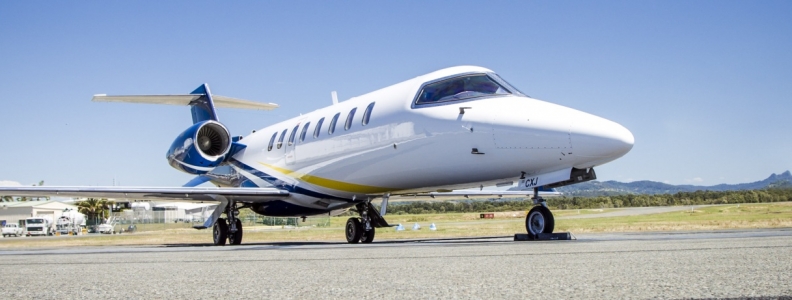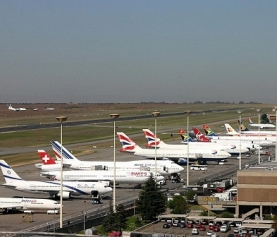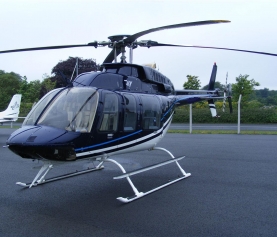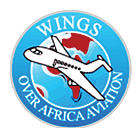
ASKY.The Family
Asky Airlines ,the ambitious Lome based private carrier ,was founded in 2010.It now serves 22 destinations in west and central Africa with seven passenger and one cargo aircraft, in cooperation with strategic partner Ethiopian Airlines. With the demise of Air Afrique (a defunct West African airline) in 1980, a serious air transport gap was created in west and central Africa.
7303
To fly a scheduled service from one West African destination to another required people to transit via Paris, Casablanca or Addis Ababa, so it was expensive and time-consuming. In 1998, leaders of the Economic Community of West African States (ECO WAS) got together and decided to establish a regional airline to facilitate air travel within the regions. A commission was formed, led by Gervais Koffi Djondo, a former minister from Togo, who was instrumental in the establishment of the now famous ECO Bank.
The commission hired consultants, who worked on the establishment of the new airline, and as part of this the need for a strategic partner was identified. After several attempts, they went to Addis Ababa to present their vision and discuss a possible partnership with Ethiopian Airlines. The discussions were fruitful. In partnership with Ethiopian Airlines, Asky Airlines (Asky stands for African Sky) was established in 2009 and the first flight took off to Guagadougou, Burkina Faso, on January 12 2010. The founding shareholders were the ECO WAS Bank of Investment and Development (EBID), the West Africa Development Bank (Banque Quest Africaine de Development –BOAD) and the ECO Bank . Initially Ethiopian Airlines owned a 25% stake in the private airline but, due to unpaid capital, its share increased to 40%. Ethiopian has a five-year management contract that enables it to manage Asky, and it also has a technical support agreement. In addition, following its investment in Asky, Ethiopian established its second hub in Lome and Asky is now a feeder airline to Ethiopian.
Currently, Asky serves 22 destinations in west and central Africa with seven passenger aircraft (four Bombardier Q400s and three Boeing B737-700s). The airline has also deployed a dedicated Boeing 737-400 for cargo aircraft in the region. Asky was established with the view of serving the market in west and central Africa.However, securing flight permits has been a challenging task for the airlines management. Asky CEO Yissehak Zewoldi said initially the airline had some bilateral issues and was unable to secure operating permits from a number of countries.”That was a real challenge. Still, we have some bilateral issues.
The Yamoussoukro Decision (the declaration that allows African countries to open skies for African airlines) is not yet fully implemented,” he said. African leaders often speak about pan-African ism and economic integration.However, the sad truth is that African countries are too far from forging regional integration. This is evident in the challenges African carriers are facing in securing flight permits in Africa.
”The reason is very simple .It is because they want to protect the interest of their own carriers,” said Zewoldi. The CEO claimed that Asky is totally different from the other airlines in the region.”First, it is a 100% privately owned airline; second, it is a community airline. “If you look at the composition of our staff we come from 35 different African countries .This is unique. So that is why we claim that we are a pan-African airline. We serve Africa and the company is owned by Africans .It is wholly run by the sons and daughters of Africa.” However, he said, the sad truth is that an African airline cannot fly to an African country without having an operating license, which is often difficult to secure.”You cannot fly to Angola or Nigeria, even if you are an African carrier,” Zewoldi lamented. The management of Asky recently prepared a five-year development plan, which the board of directors is expected to approve soon. According to the plan, the airline will add four more new aircraft in the coming few years.
The management is eying Boeing 737-800 aircraft. According to the five-year business plan, the airline will open 11 new routes by giving priority to some niche markets.”In the five years we will venture out to east and southern Africa and we will go transcontinental by flying to Beirut. We are also exploring the possibilities of serving a couple of European markets in partnership with Ethiopian Airlines,” said Zewoldi.
The airline is planning to launch flights to Johannesburg and Luanda and a destination in east Africa.”We have not decided yet as we are still exploring the market situation in east Africa in general. We are conducting a thorough market study to identify which destination easily fits into our network,” he said. Asky has a number of competitors in west and central Africa. Air Senegal, Air Cote d’Ivoire, Camecor (a new Cameroonian airline), Arik Air (Nigeria), and Air Burkina are some of the competitors. “The market in West Africa is growing but, unfortunately, some markets are highly seasonal .However, we have a solid network that covers the ECO WAS and Economic and Monetary Community of Central Africa (CEMAC) countries and beyond,” said Zewoldi. He claimed that Asky has already established a good brand name in its territories.”The feedback we are receiving from our customers is very encouraging.
We are the most dependable carrier in west and central Africa with a highly reliable scheduled and over 90% on-time performance. “Business people, government officials and international organizations are our top customers. We are an airline of choice for these customers .We have the highest number of frequencies into major markets and that is also an advantage.
We give additional choice and flexibility to business travelers. We can say, very proudly, that we are a businessman’s airline and that is why we have a very high load factor in business class.” He further noted that the passenger traffic between some cities in the region was not enough to support point-to-point operations.”So what we do is we tag cities. For example, to fly from Lome to Kinshasa we need to fly to another point in order to gather more passengers…. Some routes are thin [so] we deploy the ideal and most suitable aircraft, the Bombardier Q400, to serve these routes.” Speaking of the company’s financial performance ,Zewoldi said usually a start-up airline does not make a profit in the first few years of operation.
However,he said ,his airline reached break-even last year as projected in the initial plan.”Now we are marginally making a profit. For a start –up airline the financial performance is very encouraging, despite the high operating cost in the region.” Asked if Asky was a low-cost carrier the CEO said:”We are in a hybrid airline between low-cost and network carrier. Despite the high operational cost in the region, our traffic and financial performance are very encouraging.” However, he declined to give specific figures, saying that the financial statements were not yet audited.
The management of Asky is giving due attention to the cargo business .There are landlocked countries in the region that need to transport some goods by air.”We also have many traders in the region. We are giving more focus to our cargo business now that we have one dedicated cargo aircraft, a Boeing 737-400.We recently hired a highly experienced cargo manager and we have increased our market reach by working with many cargo agents and forwarders.” Despite all this, the start-up airline has faced a number of serious challenges.
A higher fuel cost is an unavoidable problem and the CEO admits that this is making fares expensive.”If you compare the price of fuel in West Africa with other regions, say east Africa, it is 20% more expensive and this makes fares unnecessarily expensive and thus affects our business.” Securing traffic rights is another challenge.”Though we are a pan-African airline, we are denied operating permits by some African countries.” Zewoldi went on to say that exorbitant taxes imposed on fares, and high ground-handling and airport charges, were the major challenges.
”In some airports, it is only one company that renders ground-handling services.So, it charges you whatever price it wants and you don’t have another alternative.” The on-going conflicts in Mali, northern Nigeria, the Central African Republic, and the Democratic Republic of Congo is affecting Askys operation in the region.But, it seems, the conflicts also bring business to the airlines in the region. “Sometimes we are forced to suspend flights. The conflicts are very sad incidents and we feel sorry for those unfortunate people. From a pure business point of view, these situations may also benefit an airline as there will be heavy demand for air service to transport UN staff, NGOs, diplomats, etc,” explained Zewoldi. Last July, Ethiopian started operating three weekly flights to Sao Paolo and Rio de Janeiro in Brazil, with a stopover at Lome.Zewoldi said Ethiopian flights to Brazil help Asky to boost passenger traffic.
”We collect passengers from West and Central Africa that want to travel to Brazil and feed Ethiopian at Lome,and the reserve is also true as passengers from Brazil transfer to Asky for travel to their final destination.Currently,on average ,we feed or DE-feed about 40 passengers and we are confident that figure will grow substantially in the near future.” Zewoldi wants Asky to remain a dominant airline in west and central Africa.
He said it would keep connecting major cities and commercial towns in the region with increased frequencies. According to the CEO, in the near future, Asky will also go transcontinental by flying to Beirut and in five years time it will serve a number of destinations in Europe. ‘We are working on knowledge transfer and human resource development. We are planning to do some maintenance work on our own aircraft here in Lome.We have already started training technicians and engineers at the Ethiopian Aviation Academy. We will work more on IT as we envisage [we will be] a high-tech airline with a big portion of our business coming from online sales.
We are working on marketing the airline in different parts of the world.So, in five years time, I see Asky as a successful international airline with a solid market coverage,” he concluded. Private owned airlines are playing a vital role in scheduled flights all over Africa in supplement to national flag-carriers who are the main players owned partly by the governments. Some giant airlines in Africa are forming synergies with private airlines to have destinations that are not covered by commercial flights.
The good example is the partnership of Ethiopian Airlines and the West and Central African countries to ensure all Africa countries are connected domestically, regionally and internationally. West and Central Africa have been facing difficulties by having to go to Paris or Addis Ababa to getting connecting flights after the defunct Air Afrique and with the partnership for pan-African airlines these areas will be covered. Anthony A Juma is the Editor and Director Commercial and Flights Operations at Wings Over Africa Aviation Limited.050-80-CASECURID01





